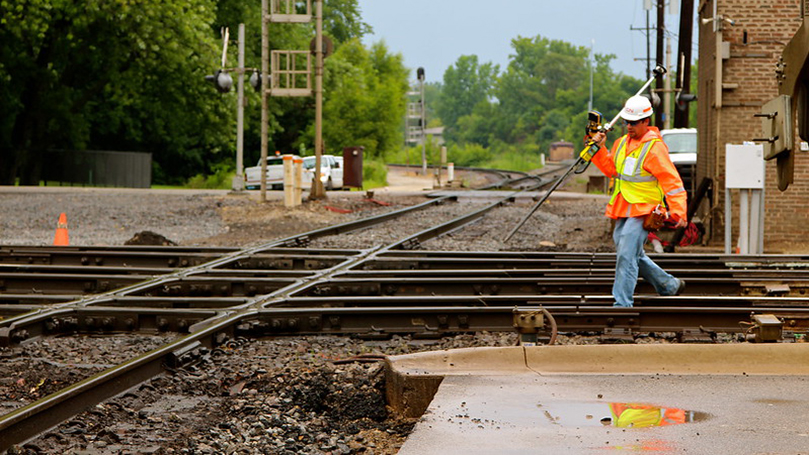
Yes, a strike of railroad workers could bring the national economy to a halt, including stopping the flow of millions of dollars a day in profits to the railroad companies. But let’s keep in mind that it’s big business—not workers—that has crashed the nation’s economy at least three times in recent memory. There was the dot com bubble, driven by venture capitalists in 2002. In the Great Recession of 2008, it was the subprime loan industry. And this year monopoly price gouging—especially in the oil industry—is inflicting inflation pain on the nation. In none of these cases did Congress act against the culprits.
It’s never been clearer who the ruling class of this country is than when Congress and the president respect big business’s rights but are quick to sacrifice those of workers.
The fact that a strike by railroad unions—collective action by more than 100,000 workers—will impact the economy, including bosses’ profits, is exactly their leverage. Isn’t that what a strike is all about? Being denied the right to strike is like being put in a boxing ring and the referee saying you have to keep our hands at your sides and you’re not allowed to punch, but your opponent has no restrictions.
This isn’t the first time that the railroad industry has used government power against the workers. Railroads are the oldest U.S. monopoly, going back over a century-and-a-half, and they are still crucial to the economy. There is a long history of attempts of the workers to organize and of government interventions.
Prior to legislation in the 1920s and ’30s, the usual forms of government intervention were injunctions and armed repression by state militias, the National Guard, federal troops, and private goons protected by all of the above. A lot of this is recounted in the book Labor’s Untold Story, which details the smashed railroad strikes of 1877 and 1894.
In 1946, and again in 1950, President Harry Truman issued executive orders and signed emergency legislation overriding the guaranteed right to negotiation (after a lengthy cooling-off period) contained in the Railway Labor Act.
Most of the important rail strikes in this country’s history occurred during economic downturns, when labor was at a disadvantage anyway. What’s different about 2022 is that there is a tight labor market, for once creating a favorable negotiating environment for workers. That makes “even-handed” government intervention all the more pernicious and intrinsically anti-labor. No wonder the railroad corporations immediately embraced Biden’s call for anti-strike legislation, while most union leaders did not.
Fascist danger
Nevertheless, it’s hard to discount concerns about the political ramifications of the economic disruption that would result from a rail strike in today’s political scene where fascism is a real threat.
Fascism is now embodied in the Republican Party, which represents the most extreme and dangerous elements of finance capital, powered by racism, misogyny, transphobia, homophobia, and anti-Semitism. The capitalist forces in this array include oil and coal, arms and prison industries, and the biggest transnational monopolies. Through their financial networks of banks, venture capitalists, hedge funds, and tech monopolies, they control and profit from big segments of the economy—including the railroad industry, the nation’s most profitable industry with a 50% profit margin.
The fascist danger is always on the agenda with regard to electoral issues: it’s hard to contemplate doing anything that would strengthen the MAGA forces in the political field. But for forces in the anti-MAGA coalition to side with the big corporations on such an important workers rights issue is itself going to create divisions in the anti-fascist forces.
The problem is that Biden’s position to deny workers’ right to strike actually makes the fascist danger greater. Why? Because it increases working-class disenchantment and cynicism, particularly—but not only—among the youth.
Progressive pro-worker legislators, who constitute a strong and growing—but far from majority—influence, are between a rock and a hard place on this.
No substitute for a negotiated contract
Senator Bernie Sanders’ proposal to add seven days sick leave to the imposed contract was a useful initiative that workers’ rights supporters could rally around. But it is not a substitute for a negotiated contract ratified by the affected workers. Sanders’ proposal passed the House as a separate bill but it failed in the Senate while the anti-strike legislation passed.
There’s a need for clear-eyed, unambiguous partisanship. After all, political alliances are based on issues, and on this one the working class has a fundamental issue with cancelling the right to strike.
We’ve got to defend the working class. However, to defend the class is more than attacking corporate Dems: We’ve got to continually raise the issue of building the movement. Had there been more pressure on the ground, Biden and Pelosi would never have dared to impose this settlement, as seen by Pelosi’s about-face after Sanders and others pushed back.
Still on the table is the fundamental principle that interfering with the right to strike—whether it’s by the troops, courts, or legislation—can never be an option.
This op-ed appeared in the People’s World on Dec. 2, 2022.
Image: Railroad maintenance worker, Roy Luck, photo cropped (CC BY 2.0).


 Join Now
Join Now